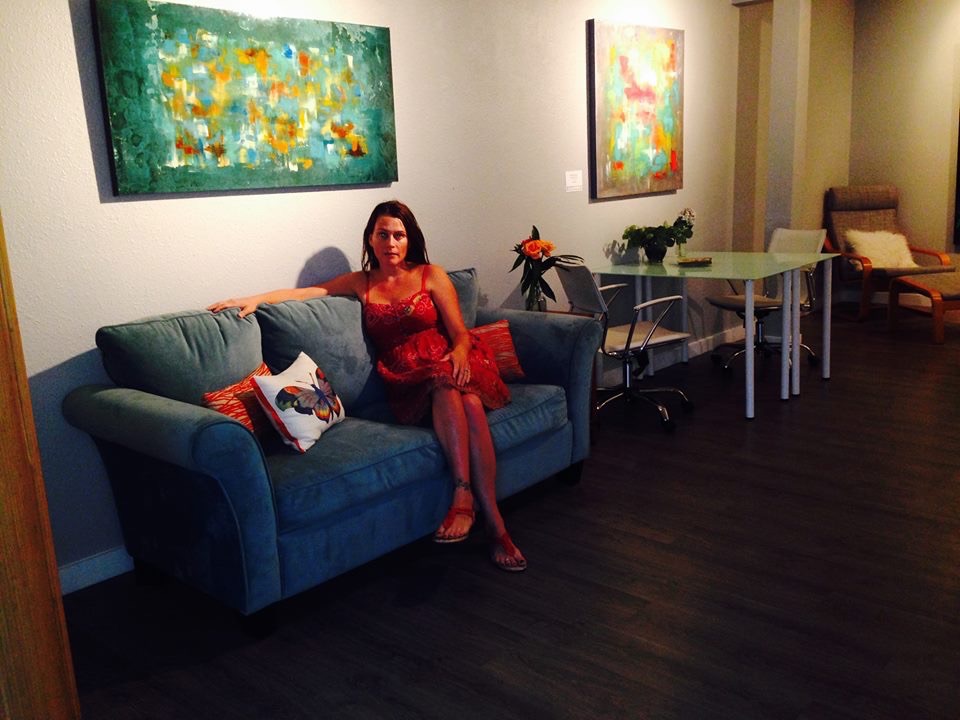The Beauty of Feeling: Why Being Sad is Part of the Journey

By: Destiny Proulx- Kier, MSW Intern
Created: January 30, 2025
Published: February 6, 2025
In a world that often prioritizes happiness, it's easy to believe that sadness is an unwelcomed guest in our emotional landscape. We make decisions based on how happy something makes us, share our best moments on social media, and measure the success of our lives by how often we feel good. Yet, as we chase after happiness, it’s important to pause and consider this:
How can we truly appreciate happiness if we never allow ourselves to feel anything else?
Sadness, though frequently labeled as a "negative" emotion, is just as essential to our emotional well-being as happiness. While society tends to push us towards positivity and avoidance of sorrow, it’s crucial to acknowledge that sadness is not a flaw to be fixed, but a part of the human experience.
Tobore (2023) points out that “Happiness is a key ingredient of well-being, and most people desire it more than anything else.”. It’s easy to get caught in the pursuit of this idealized state. On social media, for instance, only the “happy moments” are highlighted, leaving little room for vulnerability or the expression of sadness. As Tobore notes, “In this environment where happiness is greatly sought after, sadness has become a great evil to be avoided.”. But by avoiding sadness, we risk missing out on the depth and richness of life. Sadness, in fact, is an essential and normal part of the human experience. As Tobore explains, it is “an integral piece of a flourishing life,” and allows us to process challenges, grow, and ultimately become more resilient.
In a culture that overvalues “positive” emotions, many people struggle with acknowledging and expressing sadness. It can feel uncomfortable to admit that we are not okay, especially when happiness seems to be the ultimate goal. But there is value in allowing yourself to feel sad. As one psychology expert says, “Humans need a full range of emotions to work in order to respond to our own needs and those of others.” (Kramer, 2016). Allowing yourself to explore these feelings can be deeply transformative. Ultimately, “These feelings are what allow you to experience life at its fullest, and ultimately, they are part of what makes you human.” (Kramer, 2016). By embracing sadness, we not only honor our own emotional needs but also deepen our ability to understand others. Feeling sad makes us more empathetic, more compassionate, and more connected to those around us.
It’s time to redefine how we view sadness. Instead of running from it or treating it as something to avoid, we should see it as a powerful tool for growth and understanding. Let yourself feel sad when you need to, and explore what those feelings are telling you. This is not a sign of weakness but of strength. Emotions, including sadness, allow us to live more fully, to experience life in all its dimensions, and to build resilience for the challenges ahead.

References:
Tobore T. O. (2023). On the beauty of sadness: it's okay to say, I am sad, thank you. Communicative & integrative biology, 16(1), 2211424. https://doi.org/10.1080/19420889.2023.2211424
Kramer, J. (2016, September 26). Why it’s good to feel sad. Psychology Today. https://www.psychologytoday.com/us/blog/handy-hints-humans/201609/why-its-good-feel-s
Storytelling that connects, heals, and inspires our community.
Explore our library of dynamic content.

Healing from Within: How Self-Compassion Leads to Lasting Growth

Spring Reset: You’re Not Behind, You’re Right on Time
.png)
Promoting Belonging For All

How Shifting Seasons Affect Our Mood: Embracing the Changing Weather

The Neurobiology of Trauma

Setting Boundaries Without the Guilt

Faith-Based Affirmations for Confidence & Self-Love

Emotional Resilience: Building Strength in the Face of Life’s Challenges

No Vacancy: Reclaim Your Mind and Guard Your Peace

From Betrayal to Acceptance: Navigating the Complex Emotions of Friendship Breakups

The Importance of Meaningful Connections Beyond Romance

Faith and Fertility: Navigating the Journey of Infertility with Hope
.png)
The Lasting Impact of Childhood Trauma on Adult Relationships

The Impact of Television on Mental Health: A Double-Edged Sword

Ambiguous Loss: What It Is, and The Path Towards Healing
.jpg)
Breaking The Cycle Radio featuring Inspired Practice clinician Dr. Alicia Hawley-Bernandez!

The Hidden Battle; Navigating Mental Health with Chronic Illness

Supporting the Mental Health for Underrepresented Populations

Trauma and the Body: Healing Holistically

The Beauty of Feeling: Why Being Sad is Part of the Journey

How Being in Nature Can Improve Your Mental Health and Well-Being

Navigating Wellness with Dr. Jennifer Vasquez

Travel Anxiety

March is self-harm awareness month

Inspired Practice Therapist Chantal Pierre featured in Voyage San Antonio magazine
-42.jpeg)
Inspired Voices Podcast #1

Clinical Director Transforming Trauma Podcast interview

Clinical Director Go Solo interview
.jpg)
Spirituality and Mental Health

Mental Health and Addiction

How to move forward and heal from traumatic events

Burnout and the workplace




